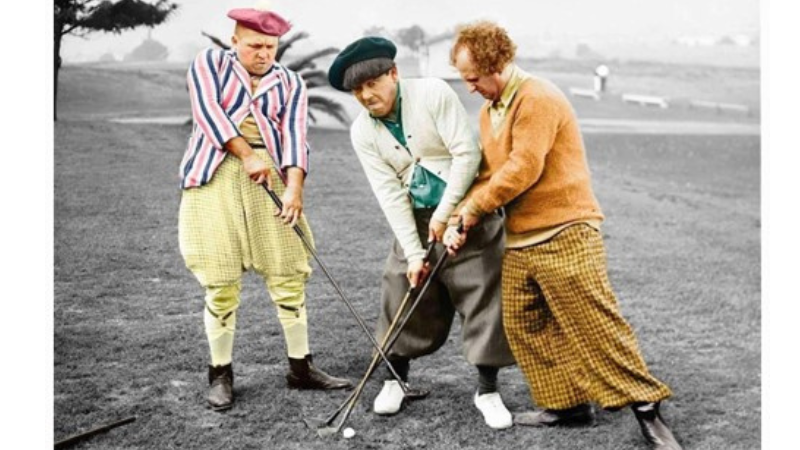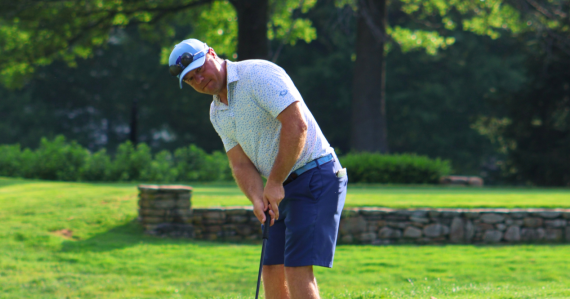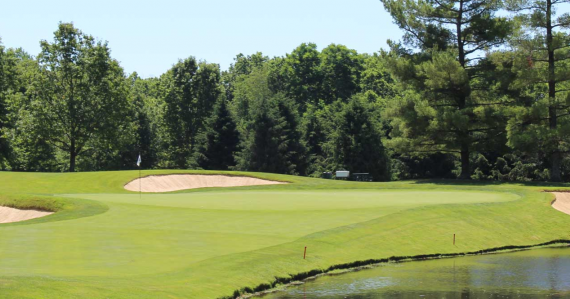
News
The Coomer Corner - I'm Late... I'm Late... I'm Late

I’m Late…I’m Late…I’m Late
Rules for the Game of Golf
The state of New York has been the home of hundreds of championships held at such prestigious venues as Shinnecock Hills, Winged Foot, Bethpage and Oak Hill. It can also claim the very first recorded round of golf in the U.S. that took place near the city of Albany. Most of the settlers of Fort Orange were readying themselves for a cold winter in December of 1650 when a bunch of kolfers (sp) took to the local links for a little competition. The winners would be warming themselves afterward with the spoils of victory, a nice bottle of brandy. Unfortunately, there was some question as to the amount of drinks being served because the chalkboard used to tally the drinks was somehow altered during the celebration. That led to a fight and to two men dying. Apparently, before they died, they did apologize to each other.
I recall during the Kentucky State Amateur one year there was a very heated dispute between two players in a group and I was forced to separate them myself. They went on to finish their rounds, but I’m sure they have never exchanged Christmas cards to this day.
If playing a round of golf can be that dangerous, you have to wonder how we ever overcame our urge to hate the game, or did we? I’ll bet you have been angry and discouraged for the first 17 holes only to hit that once-in-a-lifetime shot on #18 and come back for more.
Playing the round of golf seems pretty easy to understand. Start by hitting a ball from the first tee and keep going until you finish by putting your ball in the hole on #18. It’s funny that Rule 5 includes several other factors in describing the purpose of the rule. Where and when a player may practice and what happens when play must stop, or resume are included in this rule. It also lets you know what to do if your ball is moved or the conditions change when you have to stop play.
Let’s look at the meaning of “Round”. A round is 18 or fewer holes as determined by the committee. So, if you are told that the tournament is being contested on 14 holes, that is allowed under this rule. If that number is 19 or more, the rule is not being followed as prescribed. Many times, a committee will announce that there will be two 9-hole rounds. This provides an opportunity to complete a round that can be verified if there are difficulties finishing 18-holes, such as bad weather.
If you’re finding some words in the rules book that seem misspelled to you, the official reason is that since 2019 these published books are meant for all worldwide golfers using the English language. Therefore, some countries use different spellings than we do in the USA. One such word is “practise”. The allowance of practise on the course is determined by the following: type of competition (stroke or match play), whether play has begun, where on the course you are located and if there is to be additional competition on the course.
The time of starting part of Rule 5 provides exactness to the rule. If you have a 10:00 tee time, you cannot be late, or a two-stroke penalty will be added to your score. If you arrive at 10:00.01, you are late. It is as simple as that. But, you can still play your round if you arrive and ready to play within 5 minutes, or up to 10:05.00 for this example. In match play, an opponent may be up to 5 minutes late to their match, but they will be accessed a loss of hole penalty and the match moves on to hole #2.
If you haven’t heard there is a pace of play problem in golf, you have not been on a golf course. Every year, there is an effort to move players along in the pace of their play so everyone can enjoy their experience on the course without undue delay. The hope is that 40 seconds is plenty of time to prepare and make your stroke when it is your turn. Promptly moving from place to place is also encouraged. Some committees are adopting a local rule with penalties to be applied if a player is not abiding by the time elements suggested.
Sometimes there are reasons to stop play during a round and the rules provide guidelines for such occurrences. If there is a severe and dangerous situation, i.e., lightning or downpours, play is stopped immediately. A signal horn will blast one long note to notify the players. If the weather, darkness or other situations cause for stopping play, a horn sound of three blasts will be used. To resume play, the committee will notify the players with two horn blasts.
Finally, if your ball or marker moves during the suspension of play, you are allowed, most of the time, to replace the ball or marker on the original or an estimated spot from where it was.
Playing the round is the ultimate reason we dust off our clubs, lace up our spikes (spikeless), prepare our post-round hole-by-hole stories and love or hate the game of golf so much!




